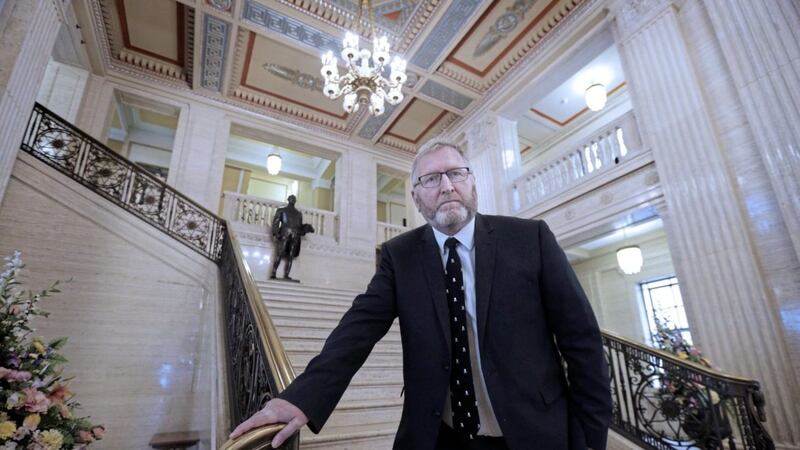IN his interview with The Irish News Political Correspondent, John Manley (September 7), UUP leader Doug Beattie noted: “The UUP is now transfer friendly and a force to be reckoned with again.”
The interview came a week or so after a LucidTalk poll had the UUP at 16 per cent, above both the TUV (14 per cent) and the DUP (13 per cent).
Fair enough, not huge leads and still 9 per cent below Sinn Fein, but it’s the highest level of support the party has registered for a long time.
And while Beattie admitted to taking the polls with a pinch of salt, he was still prepared to say he’d be “running to be first minister” at the election due next Spring.
No leader of the UUP has been able to say something like that - while keeping a straight face - since 2007. And the fact he can say it is a clear sign that a growing section within the pro-union electorate (which, it needs to be remembered, is not the same thing as the party-political unionist electorate) is warming to him.
That in itself is not enough, of course. Some of those same potential voters had expressed an interest in and support for Mike Nesbitt, but when push came to shove too many of them still drifted to Alliance, stayed with the DUP, or just remained at home on polling days.
And, in fairness to Nesbitt, the DUP didn’t go into a very public spiral of decline during his period of leadership, making it easier for both the UUP and TUV to eat into its vote.
But just because the DUP has resembled the Borgias on coke over the past six months, it doesn’t mean that Beattie can relax and assume at least some of their disgruntled voters (many of whom used to be UUP) will return to the fold.
They got their fingers burned with Trimble. They’ve now had their fingers burned again with former UUP member Arlene Foster. They’re not natural TUV types, yet they may head there (they tend to regard voting as a civic duty) if Beattie doesn’t look like the safest option during the latest crisis for unionism.
The problem is that Doug has thrown down a challenge to them in his interview with John. He has asked them to face the likely reality—re the protocol—that, “You can change the name all you want and give it whatever label, but something has to remain because we are the frontier between the EU and the UK… and you cannot move the regulatory border.”
It’s probably the most pragmatic position to adopt and he can also point the finger at the DUP and say it was their misguided trust in Boris Johnson which led to the protocol in the first place.
But he has also placed himself at odds with almost every other element of political unionism and loyalism, including the DUP, TUV, Orange Order, the Loyalist Communities Council and the younger elements of what might be described as neo-loyalism.
With the exception of the DUP most of them wouldn’t care all that much if the Assembly was crashed as part of the collateral damage of a broader anti-protocol strategy: indeed, some of them probably prioritise the collapse.
He will come under immense and intense pressure from those other elements of unionism/loyalism, as well as from elements within his own party who don’t like inter-party schism during elections (and we’re now in full-blown election mode) and who fear that a stand-alone strategy by the UUP will lead to lost votes and doorstep hostility during the election campaign.
He will also face accusations of being a ‘rollover unionist’, the same accusation which dogged Trimble from 1998 and saw the DUP finally eclipse the UUP after 30-odd years of trying.
What he does have in his favour is the fact that he actually has a strategy and an approach which consists of something more substantial than serial whingeing, serial accusations of betrayal and a demand that everyone else produce a viable, available solution to the protocol.
That may prove useful - maybe even electorally attractive - at a time when there doesn’t seem to be much confidence across unionism that protests, rhetoric and leaders (or would-be leaders) will, in fact, be able to get rid of the protocol.
But the other thing Beattie needs to bear in mind - and it played a part in Nesbitt’s undoing - is that too many of the people warming to him are not natural UUP voters: so, while praising him each time he seems to nudge towards liberalism, they still won’t vote for the party.
And at the other end of the scale, each liberal nudge costs him the support of existing unionist voters. It’s a tricky balancing act. It’s also an act that didn’t produce electoral dividends for Trimble, Empey, Nesbitt, Swann or Aiken.







